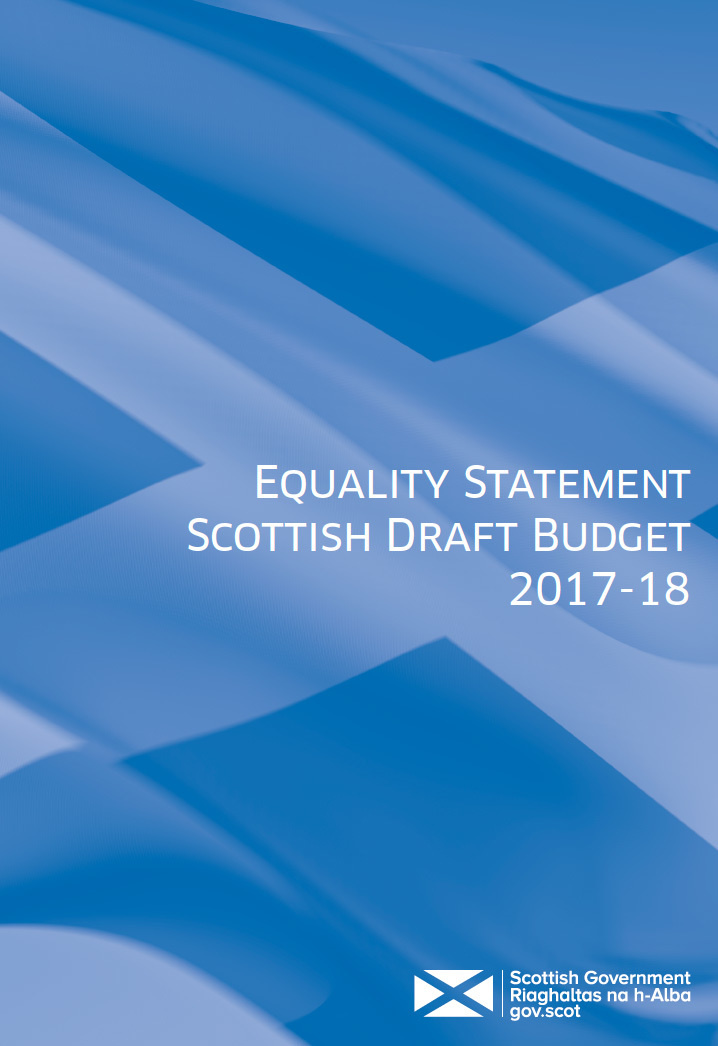In 1999 feminist activists introduced the idea of gender budgeting to Scotland. The political context was favourable. The Scottish parliament proclaimed its commitment to equal opportunities, transparency and accountability. Equal representation in the new parliament was taken seriously.
The Scottish Women’s Budget Group (SWBG), an unfunded voluntary civil society organisation, was formed in 1999. The core concern was the adoption of gender budgeting to advance gender equality policy. SWBG membership drew on a wealth of personal experience and expertise including professionals in gender analysis, public administration, civil society, academia and business.
In the early years the Scottish Women’s Budget Group had access to new government ministers and parliamentary committees. Using these networks, the group lobbied key players in the Scottish policy-making community, encouraging them to consider gender matters in the budgeting process.
The Scottish Women’s Budget Group argued that looking at the impacts on women and men would support wider equality goals
Early challenges
The Scottish Executive was reluctant to focus on gender specific solutions to inequality and pushed back on gender budget analysis. Instead ministers preferred a wider analytical framework of equality, which reflected the overarching equality strategy being developed at that time. This favoured a wider socio-economic lens, within which broad concerns for equality were implicit rather than explicit policy objectives.
The Scottish Women’s Budget Group argued that looking at the impacts on women and men would in fact support these wider equality goals. Using gender analysis would develop competence among policy-makers to consider the diverse lived realities of women and men, and the intersecting discrimination of race, class, age, disability, gender and sexual identity.
Working with government from the outside
In 2000 the Scottish government convened the Equality Budgets Advisory Group, a regular forum that included civil servants, arms-length government bodies and non-government equalities charities including the SWBG. The Equality Budgets Advisory Group advised on the links between policy-making and resource allocation, and ways to integrate equality analysis into decision-making.
A significant achievement was the production of an Equality Budget Statement presented alongside Scotland’s annual Draft Budget. This is the only one of its kind within the UK. It is an attempt to make visible money spent on the advancement of equality and how such decisions are made. However, it is a work in progress, more needs to be done to evidence the link between policy proposals, spending decisions and equality impact assessments.

Cover of the Equality Statement Scottish Draft Budget 2017-18
Contradictions in political rhetoric and policy decisions
Reflecting the founding principles of openness and transparency, the budget process in Scotland has a long period of consultation and scrutiny. This helped ease the way for an environment where gender budgeting could take place. However, in reality the extent of gender analysis of the budget in Scotland is still limited.
There is an ongoing disconnect between public commitments to pro-equality, pro-women policy and the lack of actual gender analysis around spending decisions. Little effort has been made to apply evidenced data and analysis to economic policy.
This has resulted in contradictory policy lines which have a greater impact on gender equality. Up to 2017 there was a freeze on public sector wages, for example. A majority of women working in the public sector in low paid and part-time jobs will suffer as a result. On the other hand, since 2013 the government has committed to increasing publicly funded childcare provision. The expansion of the childcare estate is part of Scotland’s infrastructure plans and its commitment to inclusive economic growth. And in some of its spending decisions the Scottish government has sought to limit the impact of changes to social security benefits introduced by the UK government.
Reflections
Discursively as well as operationally, Scotland’s attempt to integrate gender budgeting differs from experiences elsewhere in the UK. Developments in Scotland reveal a relatively open door where influential voices inside government and parliament have been prepared to listen to external voices demanding feminist policy change. The pace of change has been slower than feminist advocates may have wanted. Alternative proposals for spending, revenue-raising and the equality dimensions of budgetary analysis have often revolved around the institutions of government rather than translating into progressive change.
